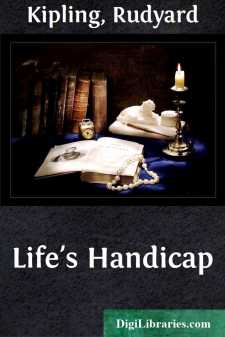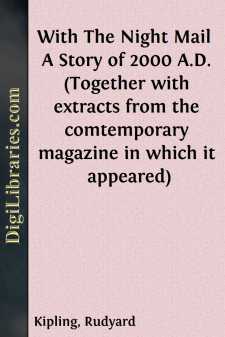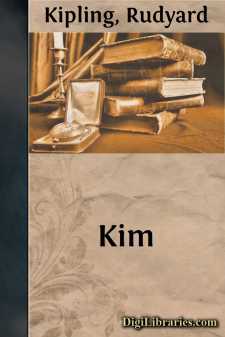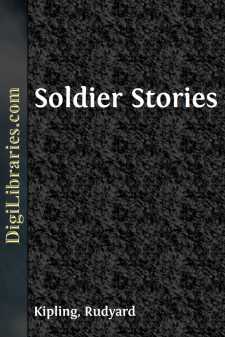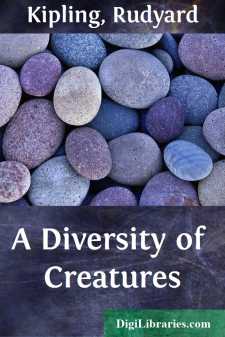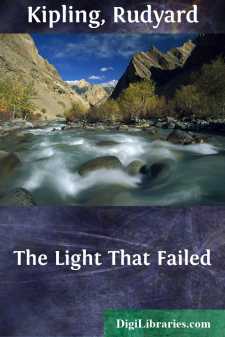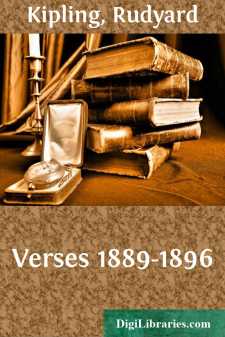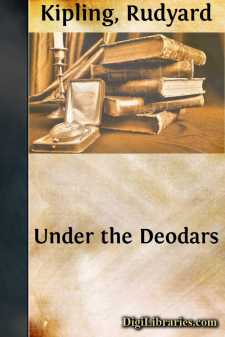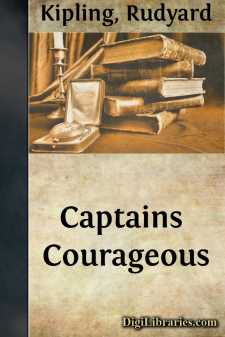Categories
- Antiques & Collectibles 13
- Architecture 36
- Art 48
- Bibles 22
- Biography & Autobiography 813
- Body, Mind & Spirit 142
- Business & Economics 28
- Children's Books 15
- Children's Fiction 12
- Computers 4
- Cooking 94
- Crafts & Hobbies 4
- Drama 346
- Education 46
- Family & Relationships 57
- Fiction 11828
- Games 19
- Gardening 17
- Health & Fitness 34
- History 1377
- House & Home 1
- Humor 147
- Juvenile Fiction 1873
- Juvenile Nonfiction 202
- Language Arts & Disciplines 88
- Law 16
- Literary Collections 686
- Literary Criticism 179
- Mathematics 13
- Medical 41
- Music 40
- Nature 179
- Non-Classifiable 1768
- Performing Arts 7
- Periodicals 1453
- Philosophy 64
- Photography 2
- Poetry 896
- Political Science 203
- Psychology 42
- Reference 154
- Religion 513
- Science 126
- Self-Help 84
- Social Science 81
- Sports & Recreation 34
- Study Aids 3
- Technology & Engineering 59
- Transportation 23
- Travel 463
- True Crime 29
Life's Handicap
by: Rudyard Kipling
Description:
Excerpt
PREFACE
In Northern India stood a monastery called The Chubara of Dhunni Bhagat. No one remembered who or what Dhunni Bhagat had been. He had lived his life, made a little money and spent it all, as every good Hindu should do, on a work of piety—the Chubara. That was full of brick cells, gaily painted with the figures of Gods and kings and elephants, where worn-out priests could sit and meditate on the latter end of things; the paths were brick paved, and the naked feet of thousands had worn them into gutters. Clumps of mangoes sprouted from between the bricks; great pipal trees overhung the well-windlass that whined all day; and hosts of parrots tore through the trees. Crows and squirrels were tame in that place, for they knew that never a priest would touch them.
The wandering mendicants, charm-sellers, and holy vagabonds for a hundred miles round used to make the Chubara their place of call and rest. Mahomedan, Sikh, and Hindu mixed equally under the trees. They were old men, and when man has come to the turnstiles of Night all the creeds in the world seem to him wonderfully alike and colourless.
Gobind the one-eyed told me this. He was a holy man who lived on an island in the middle of a river and fed the fishes with little bread pellets twice a day. In flood-time, when swollen corpses stranded themselves at the foot of the island, Gobind would cause them to be piously burned, for the sake of the honour of mankind, and having regard to his own account with God hereafter. But when two-thirds of the island was torn away in a spate, Gobind came across the river to Dhunni Bhagat's Chubara, he and his brass drinking vessel with the well-cord round the neck, his short arm-rest crutch studded with brass nails, his roll of bedding, his big pipe, his umbrella, and his tall sugar-loaf hat with the nodding peacock feathers in it. He wrapped himself up in his patched quilt made of every colour and material in the world, sat down in a sunny corner of the very quiet Chubara, and, resting his arm on his short-handled crutch, waited for death. The people brought him food and little clumps of marigold flowers, and he gave his blessing in return. He was nearly blind, and his face was seamed and lined and wrinkled beyond belief, for he had lived in his time which was before the English came within five hundred miles of Dhunni Bhagat's Chubara.
When we grew to know each other well, Gobind would tell me tales in a voice most like the rumbling of heavy guns over a wooden bridge. His tales were true, but not one in twenty could be printed in an English book, because the English do not think as natives do. They brood over matters that a native would dismiss till a fitting occasion; and what they would not think twice about a native will brood over till a fitting occasion: then native and English stare at each other hopelessly across great gulfs of miscomprehension.
'And what,' said Gobind one Sunday evening, 'is your honoured craft, and by what manner of means earn you your daily bread?'
'I am,' said I, 'a kerani—one who writes with a pen upon paper, not being in the service of the Government.'
'Then what do you write?' said Gobind....


